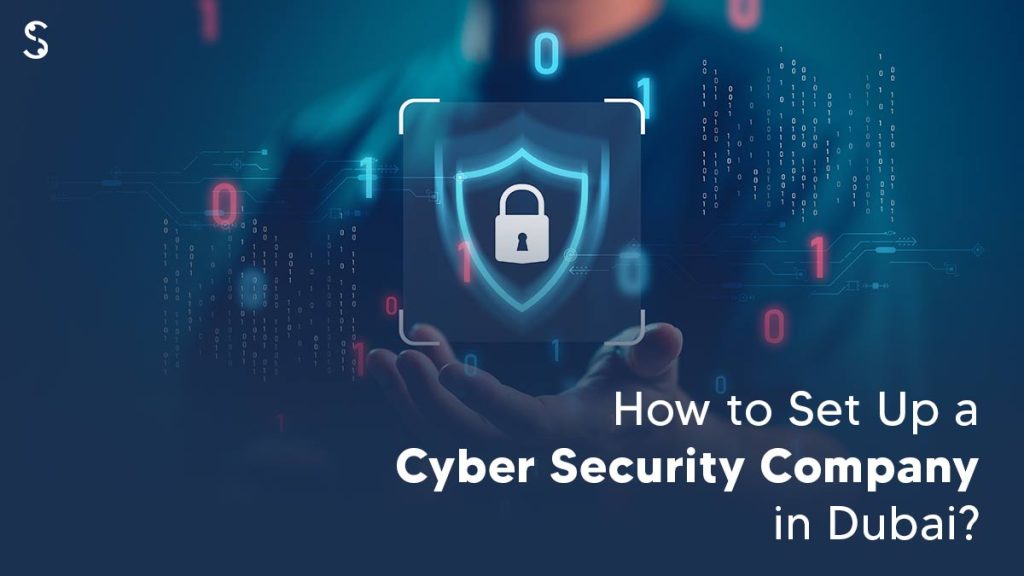30 Excellent Suggestions For Picking A Cybersecurity Company in UAE
30 Excellent Suggestions For Picking A Cybersecurity Company in UAE
Blog Article
Top 10 Ways To Determine The Expertise And Qualifications Of A Cybersecurity Company In Dubai, Uae
1. Assess Professional CertificationsBegin by investigating the professional certificates held by the company's staff. Certifications such as copyright Security Professionals, Certified Information Security Managers Certified Ethical Hackers and copyright Auditor are all good to look for. These certifications indicate the commitment to professionalism as well as high levels of expertise.
Review Team Experience
Check the overall level of experience of the team members. Ask them about their previous experiences as well as the amount of time they've been in the cybersecurity sector and the previous positions they held. A group of professionals with expertise from various industries can provide fresh ideas and solutions.
3. Make sure you have a thorough education background
Verify the qualifications of key employees. The degrees relevant to cybersecurity, computer technology, and information technology demonstrate a high level of foundational knowledge. Higher education qualifications, when combined with certifications from professional organizations can increase credibility.
4. Study of the specialization areas
Team members must be able to specify their areas of expertise. Your company's needs may require experts in certain areas, such as cloud security. Specialized knowledge is more likely to lead to better solutions for cybersecurity challenges.
5. Contact us to Learn More About Our Ongoing Training & Development
The company should be evaluated on its commitment to continual training and professional growth. Cybersecurity is a rapidly evolving field and continuing education through workshops, seminars, and additional certifications is vital to keep your current with the latest technology.
Review Past Projects, Case Studies and Case Studies
You can request past cases or projects that demonstrate the expertise of the firm. If they can explain the specific ways they dealt with particular cybersecurity issues with prior clients, it can provide a greater understanding of their ability to solve problems.
7. Request client testimonials References, reviews and testimonials
It is crucial to collect testimonials and suggestions from clients who have been capable of evaluating the company's performance and experience. Positive feedback is a sign of a strong reputation within the industry, and can show that the company is able to provide top-quality services.
8. Examine how industry can be involved
Review the company's participation in the cybersecurity community. Participation in industry conferences, webinars or contributions to publications on cybersecurity are a sign of a willingness to stay informed about the latest developments.
9. Examine Research and Development Initiatives
Examine whether the business invests in research and development (R&D) to improve the security offerings of its clients. R&D is often the first to launch new technologies. This will benefit customers seeking creative approaches to cyber security.
10. Seek out Awards and Recognition
Finally, take a look at any awards or recognitions received by the company in the field of cybersecurity. Industry awards indicate quality service and dedication. This will increase the reputation and credibility of a company. Follow the most popular Cybersecurity Company in Dubai for site advice including consulting security, network security in cyber security, cyber security software, cyber security risks, cyber security sites, cyber security what, cyber cyber security, cybersecurity technologist, network security and, cybersec consulting and more.
Top 10 Ways To Evaluate The Incident Response Capabilities Of A Cybersecurity Services Business
1. Understanding the Incident FrameworkBegin your process by studying the framework for incident response that is used by your business. If the framework is well established, such as the NIST Cybersecurity Framework, or SANS Incident Response Process for instance, it suggests that the company adheres to industry-standard practices to manage incidents effectively. Make sure they have a clear and well-organized procedure for dealing with incidents.
2. Evaluate Incident Response Team Expertise
Examine the qualifications and experiences of the members. Find certifications like Certified Incident Handler(GCIH) or copyright Security Professional(copyright). Team members who are knowledgeable in the discipline of incident management and mitigation are able to effectively manage and minimize incidents.
3. Review past incident response Case Studies
You can also request case studies or examples from the firm of prior incidents they have managed. Analyzing their response to real-life scenarios can provide insights into their speed, effectiveness and general approach to managing incidents. Get detailed explanations of the ways in which the company identified, contained, resolved incidents, and reacted to them.
4. Check for 24/7 Incident response availability
Find out if the company offers 24/7 incident response. An incident involving cybersecurity can happen at anytime. A team that is available 24/7 can help reduce damage while also reducing recovery time.
5. Request Information About Incident-Detection Tools
Examine the tools and technologies the company utilizes to detect incidents. Effective detection software, such one like a Security Information and Event Management system (SIEM), and an intrusion detection (IDS) is crucial in identifying security threats as swiftly and effectively as you can.
6. Examine Communication Protocols
Examine any communication protocols the company uses during an incident. Clear and effective communication is crucial for coordinating responses, informing stakeholders, and making sure everyone is aware of their roles during an incident. Knowing how they communicate with clients throughout the response is important.
7. Review Review Processes for Post-Incident Review
Ask the company about its post-incident review processes. After an incident, thorough reviews are able to aid in identifying areas for improvement and the lessons gained. Companies that make adjustments as a result of these reviews are more effective.
8. Evaluate Recovery and Remediation Strategies
Know the methods the company uses to recover and repair after an incident. Plans for recovery that work must include ways to restore data and systems as well as addressing weaknesses to prevent further incidents. Inquire about their approach to recovering and strengthening systems following an incident.
Verify compliance with regulatory requirements.
Make sure that the capabilities of your business for incident response are aligned with the applicable regulations. In certain industries, you may have specific requirements for incident reporting and response. Compliance can be ensured by a company that understands the regulations.
10. Request references and testimonials.
Gather references from clients who have used the incident response service provided by your company. Testimonials from clients can give an important insight into the efficiency and reliability of the company's response during incidents. Have a look at the most popular penetration testing dubai for website examples including network security tools, cyber security projects, information security, secure the data, network security tools, cyber security education, cyber security services near me, best cyber security company, cyber security security, information security and more.
Top 10 Ways To Evaluate The Contracts And Pricing Structure Of A Cybersecurity Service Company
1. Know Pricing ModelsStart by familiarizing yourself with the different pricing models employed by the business. The most common models are fixed-price agreements, hourly rates, and subscription-based services. Understanding these models can help you decide which one will fit your budget best and how costs accumulate over time.
2. Request for Quotes
Get detailed estimates that contain all expenses. The quotes should be transparent and include descriptions, fees and other charges. The clarity of pricing can to avoid any unexpected costs.
3. Compare Service Packages
Ask them if they have bundles of services. Bundling service packages can save you money compared to buying them individually. Examine the available bundles to see if you can find one that meets your needs while giving you financial benefits.
4. Ask about any additional costs
It is important to inquire about additional charges regardless of whether they are not immediately obvious. It can be overtime costs, travel expenses, and emergencies support costs. Knowing the total costs is crucial for budget planning.
5. Flexible Contracts: An Overview of the options
Review the contract's flexibility. If you are able to modify the services offered to meet your changing requirements the contract may be an ideal match. A contract which is too rigid may result in unnecessary costs and limitations on service adaptability.
6. Check for Requirements of Long-Term commitment
Find out if the pricing structure is tied to a commitment to a specific time. Some companies will provide lower prices for long-term contracts, but you could be locked into an agreement. You should weigh the risks and benefits of adjusting your requirements.
Review Termination Clauses
Understand the conditions under which you may end the agreement, as well as any penalties associated with it. Know the terms under which you are able to terminate the contract and the penalties that go with it. You may apply a fair-termination policy to exit if you feel that the service provided does not meet expectations.
8. Pay Terms Review of Pay Terms
Ask about payment conditions. Understanding when payments are due, whether installment payments are an option, and the discounts provided for upfront payments are crucial. The cash flow management process can be improved by having clear payment terms.
9. Seek clarification on SLA Penalties
Examine the Service Level Agreements, especially the penalties for failures to maintain service levels. Knowing these penalties will give you an idea of the firm's commitment to service quality and accountability.
10. Compare your competitors
Review the pricing structure and contract terms against other cybersecurity service providers in the UAE or Dubai. This benchmarking will allow you to assess the level of competition as well as the value you will get from your investment. Read the top rated iconnect for website advice including security solution, managed security services, information technology security, cyber security what, information and security, data security management, it security logo, network security management, cyber security business, network security tech and more.